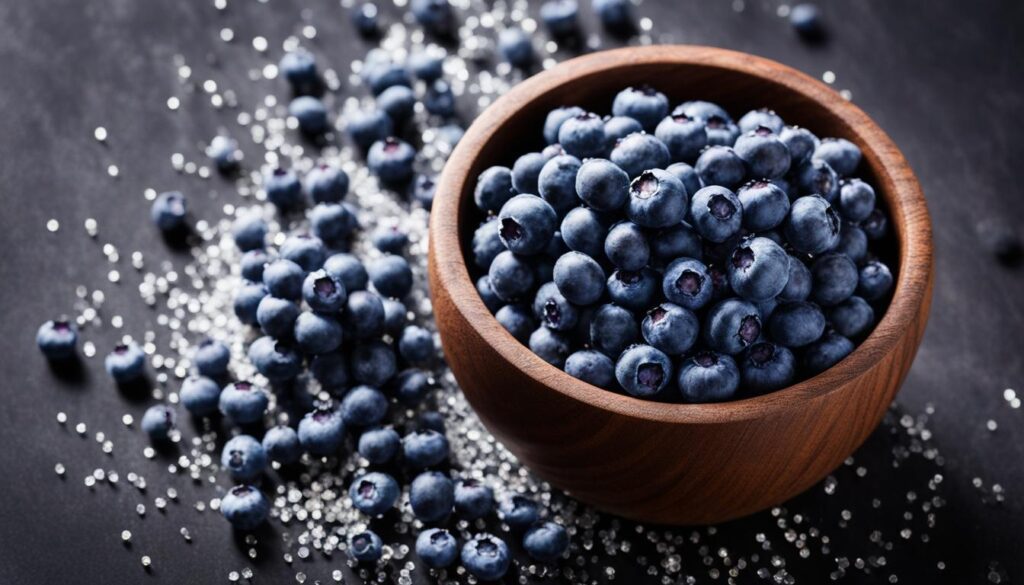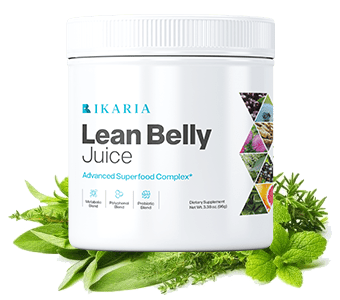
The pursuit of health and wellness often leads to the exploration of nutrient-rich foods that promise an array of health benefits. Superfoods, with their dense nutrient profiles and abundance of antioxidants, stand at the forefront of this quest. These power-packed edibles have shown promise in the prevention of chronic diseases and play an instrumental role in cultivating a healthy diet. Whether it’s the deep hues of blueberries or the robust leaves of kale, these foods deliver essential vitamins and minerals critical for disease prevention and overall well-being.
Key Takeaways
- Superfoods are revered for their high concentrations of nutrients critical for health and wellness.
- Including a variety of superfoods in your diet can contribute to disease prevention.
- The rich antioxidant content in these foods helps combat oxidative stress and inflammation.
- Integrating superfoods into meals can offer significant health benefits.
- A healthy diet imbued with superfoods can improve energy levels and overall vitality.
- Understanding the nutrient profiles of superfoods is key to maximizing their health-promoting potential.
Nature’s Bounty: Exploring the Variety of Superfoods
Embracing a rainbow of superfoods contributes significantly to our overall health. These powerhouse foods are not just a fad; they are nature’s gift, packed with vitamins, minerals, and a host of other nutrients that come together to fend off illnesses and boost well-being. The superfoods list is diverse and serves different health needs. Let’s delve into the essentials of this curated selection.
Chief among these are the plant-based proteins like legumes, which are a good source of not only protein but also fiber, making them an ideal choice for people focused on sustainable, health-conscious diets. Meanwhile, ancient grains and whole grains offer complex carbohydrates and fiber, which aid in maintaining a healthy digestive system and sustaining energy levels throughout the day.
When it comes to greens, leafy greens stand out as a must-have in every meal plan. Not only do they rank high on the list of superfoods for their nutrient density, but they also contribute to a well-rounded diet. Similarly, a variety of fruits and vegetables ensures intake of ample antioxidants, which are key in combating oxidative stress and inflammation.
Nuts and certain fish are praised for their rich content of omega-3 fatty acids, which have been shown to be critical for cognitive function and cardiovascular health. On the other hand, legumes enrich our meals with plant-based protein and healthy fats, bolstering our nutrient intake with every serving.
| Superfood Category | Key Benefits | Examples |
|---|---|---|
| Plant-based Proteins | Supports heart health and digestion | Lentils, beans, chickpeas |
| Ancient Grains | High in fiber, promotes weight management | Quinoa, amaranth, spelt |
| Whole Grains | Reduces risk of chronic diseases | Barley, brown rice, oats |
| Leafy Greens | Rick in vitamins and minerals, immune support | Kale, spinach, Swiss chard |
| Omega-3 Sources | Important for brain and heart health | Salmon, flaxseeds, walnuts |
| Fruits and Vegetables | Provides antioxidants and vitamin C | Berries, oranges, bell peppers |
Each superfood on this list provides an incredible array of nutritional benefits that, when combined in a balanced diet, can lead to optimal health. Choosing a variety of these foods is essential for obtaining the diverse nutrients our bodies require for peak performance and longevity.
The Science of Nutrient-Dense Foods for Optimal Health
Superfoods, those powerhouses of nutrition, are not just about being trendy; they’re a cornerstone of a health-conscious lifestyle. Packed with nutrient-dense goodness and potent bioactive compounds, they’re the heroes in our daily diets. These edibles come loaded with a range of flavonoids, antioxidants, omega-3 fatty acids, and probiotics—all of which are essential for maintaining and improving gut health and overall well-being.

Understanding the Role of Antioxidants in Superfoods
Superfoods owe much of their disease-fighting reputation to antioxidants. These molecular warriors take on free radicals, reducing oxidative damage and shielding the body from many chronic diseases. The result? A reduction in the likelihood of conditions ranging from heart disease to certain cancers. And we’re not just talking vague benefits; the concrete impact of these nutrients is well-documented in scientific literature.
Unlocking the Potential of Omega-3 Fatty Acids in Superfoods
The discussion on heart health cannot be had without mentioning the significant role of omega-3 fatty acids. Abundant in superfoods like salmon and walnuts, these fats play a critical role in cardiovascular well-being, helping to stabilize blood pressure and cholesterol levels. Their benefits extend beyond the heart, improving joint health and even boosting cognitive functions.
Probiotics and Their Role in Digestive Wellness
Fascinatingly, superfoods extend their reach into the realm of gut health through probiotics. Found in fermented favorites like yogurt and kefir, these live bacteria restore balance to our gut flora. They’re not just about keeping digestion smooth; they also have a hand in strengthening the immune system and can even impact your mood and mental health.
| Superfood | Key Nutrients | Health Benefits |
|---|---|---|
| Blueberries | Antioxidants, Vitamins C & K | Oxidative stress reduction, immune support |
| Salmon | Omega-3 Fatty Acids | Improved cardiovascular health, cognitive function |
| Yogurt | Probiotics, Calcium | Digestive wellness, bone health |
| Walnuts | Omega-3 Fatty Acids, Vitamin E | Heart health, antioxidant properties |
Highlighting Specifics: The Remarkable Benefits of Blueberries
Among the pantheon of superfoods, blueberries stand out with an impressive array of health benefits that cater to both the body and the mind. Packed with potent antioxidants, these small yet mighty fruits support overall wellness and are deliciously easy to incorporate into any diet.
One of the most lauded components found in blueberries are anthocyanins, a type of antioxidant that not only gives these berries their rich blue hue but also provides considerable protective effects. Anthocyanins are celebrated for their ability to combat oxidative stress and inflammation, two adversaries of cardiovascular and cognitive health. Regular indulgence in the health benefits blueberries offer is linked to improved cognitive function and a fortified defense against cognitive decline.
- Rich in vitamins and fiber
- Contributes to heart health
- Supports a healthy immune system
- Aids in reducing the risk of certain cancers
- Potential in slowing the signs of aging

More than just benefiting the mind, blueberries contribute significantly to heart health through their fiber content and cardiovascular-friendly vitamins, such as Vitamin C. Along with maintaining a healthy immune system, eating blueberries can be a tasty strategy in the reduction of heart disease risk. In addition to these benefits, the vitamins in blueberries also foster resilience against everyday ailments and fortify the body’s natural defenses.
Health professionals often tout blueberries as a cornerstone for a nutritious diet due to their high nutritional value and broad health benefits. By introducing blueberries into regular consumption, individuals take an enjoyable step towards enhancing their overall well-being, from bolstering heart health to potentially preventing age-related health issues and certain types of cancer. For those seeking a simple, flavorful, and effective way to enrich their health, blueberries are an undeniably sweet choice.
Kale: A Leafy Powerhouse in Disease Prevention
Kale, revered for its dense nutrients and health fortifying properties, emerges as a pivotal ingredient in the quest for healthy eating and robust immune support. Its impressive content of vitamins such as vitamin A, the mighty antioxidant vitamin C, and blood-clotting vitamin K, underscores its acclaimed status in disease prevention. A serving of kale not only fulfills a substantial percentage of daily required nutrients but also provides the body with minerals and fiber, which are instrumental for maintaining a balanced and nutritious diet.

Integrating kale into meals is as effortless as it is advantageous. The versatility of kale allows it to be a staple in numerous culinary creations, from crisp salads and hearty soups to smoothies and baked chips. Beyond just culinary flexibility, kale’s low-calorie profile makes it a desirable choice for those looking to maintain or achieve a healthy weight.
| Nutrient | Benefit |
|---|---|
| Vitamin A | Supports eye health and immune function |
| Vitamin C | Enhances skin health and assists in immune defense |
| Vitamin K | Essential for blood clotting and bone health |
| Fiber | Aids in digestion and supports cardiovascular health |
| Antioxidants | Neutralize harmful free radicals and may reduce cancer risk |
Rigorous studies have aligned the consumption of kale with a myriad of health advantages, notably its potential to streamline digestion and lower cholesterol levels. The antioxidants found in kale, such as quercetin and beta-carotene, are pivotal in fighting oxidative stress and may play a role in warding off cancer. Bolstering such claims, the health community continues to advocate for the integration of kale as a critical component for those seeking a nutrient-rich diet for health maintenance and disease prevention.
- Improved Digestion
- Decreased Cholesterol Levels
- Strengthened Immune System
- Preventative Effects Against Various Cancers
- Vibrant Skin Health
Indeed, the robust profile of kale positions it as an invaluable ally in the realm of superfoods. Its acclaim and efficacy are not just the result of ephemeral trends but a reflection of its integral health benefits firmly rooted in nutritional science. For those committed to a lifestyle that encompasses healthy eating and disease prevention, kale offers a practical and powerful addition to their daily regimen.
Superfood Superstars: Chia Seeds and Quinoa
Embarking on a journey towards better health often leads us to nature’s remarkable offerings—superfoods. Among these, chia seeds and quinoa are two notable powerhouses, each delivering essential nutrients conducive to heart health, effective weight management, and sustained energy. In this section, we explore the monumental benefits of these tiny but mighty ingredients.

Chia Seeds: A Tiny Source of Mighty Nutrients
Chia seeds are minuscule gems high in fiber and packed with omega-3 fatty acids, making them champions for heart health. These small, yet powerful seeds are also a formidable source of protein and contribute significantly to a well-rounded diet.
Quinoa: Ancient Grain with Modern Health Perks
Quinoa has been regarded as a staple food for its complete protein profile, providing all nine essential amino acids our body requires. It is the perfect choice for those seeking a substantial energy boost, and its role in weight management is unparalleled among grains.
| Nutrient | Chia Seeds | Quinoa |
|---|---|---|
| Protein | 4g per tablespoon | 8g per cup (cooked) |
| Fiber | 11g per ounce | 5g per cup (cooked) |
| Omega-3s | 5g per ounce | Not significant |
| Amino Acids | All essential types in lesser amounts | Complete spectrum |
| Calcium | 18% RDI per ounce | 3% RDI per cup (cooked) |
| Iron | 12% RDI per ounce | 15% RDI per cup (cooked) |
As we can discern from the table above, both chia seeds and quinoa contribute exceptionally to our daily nutritional requirements. Whether it’s starting the day with a chia seed-laden smoothie or fueling a workout with a quinoa salad, harnessing the potential of these superfoods is straightforward and delicious. By combining these nutrient-packed foods into your diet, they serve as catalysts not only for maintaining vitality but for propelling us towards a pinnacle of holistic health.
Heart-Healthy Favorites: Avocado and Omega-3 Rich Choices
Among the bevy of heart-healthy options available, the avocado stands out not only for its creamy texture and versatility but also for its impressive nutritional profile. Rich in monounsaturated fats, avocados can assist in lowering cholesterol, which is crucial for maintaining cardiovascular health. They are also an excellent good source of vitamin E, known for its antioxidant properties and skin health benefits.

Equally important, avocados deliver substantial amounts of potassium, which is essential for blood pressure regulation. In addition to its other heart-friendly benefits, it’s the synergy of these nutrients that positions avocados as a top superfood for those looking to nourish their heart.
Turning our attention to omega-3 fatty acids, which are highly praised for their anti-inflammatory effects, we find them in abundance in certain fish and nuts, such as salmon and walnuts. These omega-3 rich foods contribute greatly to heart health, and beyond, bolstering cognitive function linked to mental clarity and focus.
- Monounsaturated Fats: Support heart health and regulate cholesterol
- Potassium: Aids in controlling blood pressure
- Fiber: Promotes digestive health and weight management
- Omega-3 Fatty Acids: Offer anti-inflammatory benefits and enhance mental well-being
- Vitamin E: Essential for skin and eye health, and acts as an antioxidant
Embracing these heart-healthy superfoods is not just about reaping these substantial benefits. It’s also about enjoying the delectable flavors that nature provides, ensuring that taking care of your health is a pleasure, not a chore.
From Spice Racks to Medicine Cabinets: The Healing Power of Turmeric
The vibrant golden hue of turmeric is not its only distinguishing feature; this spice is a treasure trove of health benefits, primarily owing to curcumin, its primary active compound. Recognized for its anti-inflammatory qualities, turmeric offers a natural remedy for reducing arthritis symptoms, making it a staple in holistic health practices and a subject of continuous scientific research. But the scope of turmeric’s benefits extends well beyond joint health.

Further delving into the realm of cognitive well-being, turmeric is celebrated for promoting brain health. Studies have linked curcumin to enhanced neuroprotective activities, suggesting that this potent antioxidant can play a role in maintaining mental acuity and potentially warding off neurodegenerative conditions. Additionally, its ability to boost the immune system cannot be overstated, with antioxidants that combat oxidative stress and bolster our body’s defense mechanisms against a variety of ailments.
- Relief from Arthritis Symptoms
- Support for Brain Health and Cognitive Function
- Immune System Enhancement
- Antioxidant Properties for Overall Wellness
| Health Aspect | Benefits of Turmeric |
|---|---|
| Arthritis | Curcumin’s anti-inflammatory properties help alleviate joint pain and stiffness. |
| Brain Health | Curcumin supports neuroprotective functions and may improve memory. |
| Immune System | Antioxidants in turmeric strengthen the immune response to pathogens. |
| Overall Wellness | Curcumin can contribute to the prevention of oxidative stress-related diseases. |
As we explore the versatility of turmeric in culinary creations, its fusion of flavor and wellness is hard to match. From a dash in smoothies to a spoonful in curries, turmeric’s inclusion in everyday meals becomes not just a treat for the taste buds, but also a boon for health.
Conclusion
As we’ve journeyed through the world of superfoods, the importance of incorporating these nutrient powerhouses into our daily nutrition has been made abundantly clear. However, as beneficial as these foods are, they are best utilized within the framework of a balanced diet. No single food item can deliver all the health solutions we seek; rather, it is the synergistic effect of a varied diet that cultivates optimal health. The Food and Drug Administration (FDA), while not specifically regulating the term “superfood”, does underscore the importance of consuming a variety of food groups.
The Bigger Picture: Integrating Superfoods into a Balanced Diet
The true value of superfoods lies in their ability to supplement a health-conscious diet rather than dominate it. Portion control and comprehensive nutritional information are pivotal to ensure that even the healthiest of foods are consumed in moderation. To avoid the risks of calorie overload and to grasp the full benefits superfoods offer, it’s essential to intertwine them with other dietary staples recommended by health authorities like the American Heart Association.
Navigating Through Marketing Hype to Genuine Superfood Health Boosters
In the bustling marketplace of the food industry, the buzz around superfoods can sometimes eclipse the factual evidence that underscores their benefits. Discerning consumers should seek scientifically validated health claims rather than be swayed by clever marketing strategies. This informed approach guarantees that one’s diet is not only enriched by these celebrated foods but also grounded in a realistic and health-promoting nutritional philosophy. Ultimately, embracing superfoods as part of a broader, nutritionally rich diet is the cornerstone to lasting wellness.
FAQ
What defines a food as a “superfood”?
A “superfood” denotes a food that is exceptionally nutrient-dense, meaning it is loaded with vitamins, minerals, antioxidants, and other health-promoting compounds. These foods are reputed to offer various health benefits and may contribute to the prevention of chronic diseases when incorporated into a healthy diet.
Can you provide a list of popular superfoods?
Certainly! Some popular superfoods include blueberries, kale, chia seeds, quinoa, avocado, turmeric, walnuts, salmon, leafy greens like spinach and swiss chard, legumes such as beans and lentils, and whole grains like oats and barley.
How do antioxidants in superfoods impact health?
Antioxidants are compounds found in superfoods that help neutralize harmful free radicals in the body. By combating oxidative stress, antioxidants can reduce the risk of chronic conditions like certain types of cancer, heart disease, and age-related diseases, thus strengthening overall health.
What are the specific health benefits of omega-3 fatty acids in superfoods?
Omega-3 fatty acids, particularly EPA and DHA found in fish like salmon, as well as ALA found in walnuts and chia seeds, are known for their anti-inflammatory effects. They support cardiovascular health by helping to lower cholesterol levels, reduce high blood pressure, and lower the risk of heart disease. They also play a crucial role in brain function and mental health.
How can probiotics in superfoods enhance digestive health?
Probiotics are beneficial bacteria that reside in the gut and are found in superfoods like yogurt and kefir. They help maintain a healthy balance of gut bacteria, which is essential for proper digestion, nutrient absorption, and immune function. Probiotics can also prevent or alleviate various digestive issues and contribute to gut health.
What makes blueberries a standout superfood?
Blueberries are rich in powerful antioxidants like anthocyanins, which provide a range of health benefits, including reducing inflammation, protecting against heart disease, and possibly warding off cognitive decline. They’re also a good source of vitamin C and fiber, which further support overall wellness and disease prevention.
Why is kale considered a superfood powerhouse?
Kale is one of the most nutrient-rich leafy greens available, packed with vitamins A, C, and K, fiber, antioxidants, and minerals, which support a wide array of health benefits. It aids in digestion, lowers cholesterol levels, strengthens the immune system, and may help protect against various forms of cancer.
What are the advantages of incorporating chia seeds and quinoa into my diet?
Chia seeds are an excellent source of omega-3 fatty acids, fiber, and protein, which support heart health, improve digestion, and help manage blood sugar levels. Quinoa is an ancient grain high in complete protein, providing all essential amino acids, fiber, and key nutrients, offering energy and promoting weight management.
How do avocado and other omega-3 rich foods benefit heart health?
Avocado is loaded with heart-healthy monounsaturated fats and potassium, which support cardiovascular function and help lower high blood pressure. Foods rich in omega-3 fatty acids, such as certain fish and nuts, also reduce inflammation and have been linked to a lower risk of heart disease.
What makes turmeric a valuable addition to a health-conscious diet?
Turmeric is treasured for its compound curcumin, which boasts anti-inflammatory and antioxidant properties. It may help with arthritis symptoms, support brain health, enhance immune function and could offer protection against certain types of cancer.
How can I effectively integrate superfoods into a balanced diet?
To harness the benefits of superfoods, integrate them into a diet that includes a wide variety of foods. Balance is key; ensure you are getting a mix of proteins, carbohydrates, fats, vitamins, and minerals. Pay attention to portion control and avoid relying on superfoods as your sole source of nutrition.
How can consumers differentiate between genuine superfood health benefits and marketing hype?
Consumers should look for scientific evidence supporting health claims, rather than just marketing narratives. It’s important to examine product labels for nutritional information and, if needed, seek guidance from health professionals or reputable sources like the FDA or American Heart Association. Being educated on what constitutes a health-conscious diet can help consumers make informed choices.






